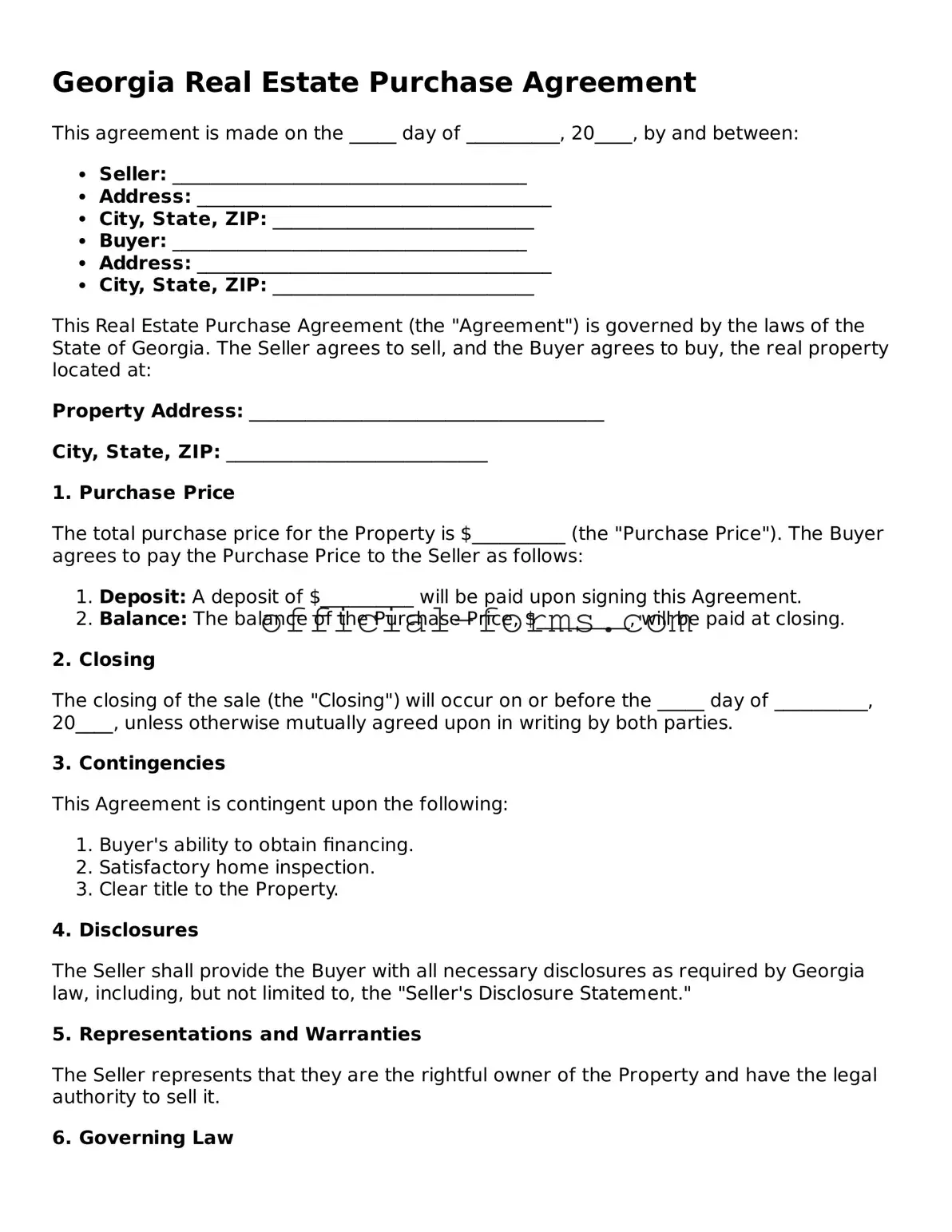Filling out the Georgia Real Estate Purchase Agreement can be daunting. Many people make common mistakes that can lead to delays or complications in the buying or selling process. One frequent error is not including all necessary parties. Each individual or entity involved in the transaction must be clearly named. Omitting a party can create confusion and legal issues down the line.
Another common mistake is failing to specify the purchase price. This detail is crucial, as it defines the terms of the sale. Leaving it blank or writing an incorrect amount can lead to misunderstandings and disputes. Buyers and sellers should double-check this section to ensure accuracy.
Many individuals also overlook the importance of accurate property description. The agreement should include the full legal description of the property, not just the address. An incomplete or vague description can complicate the transaction and may even lead to legal challenges.
Additionally, people sometimes forget to include contingencies. Contingencies are conditions that must be met for the sale to proceed. Common examples include financing approval and home inspections. Without these, buyers may find themselves in a difficult situation if something goes wrong.
Another mistake is neglecting to provide earnest money details. This deposit shows the buyer's commitment to the purchase. If the amount or terms are unclear, it can create uncertainty and potentially jeopardize the sale.
Buyers and sellers often fail to understand the closing date. Not specifying a closing date can lead to confusion and delays. It is essential to agree on a timeline that works for both parties to avoid any last-minute issues.
Inaccurate or missing signatures can also derail the process. All parties involved must sign the agreement for it to be legally binding. A missing signature can render the document invalid, causing significant delays.
People sometimes ignore the need for additional disclosures. Georgia law requires sellers to disclose certain information about the property. Failing to provide these disclosures can lead to legal repercussions and loss of trust between parties.
Another common oversight is not reviewing the agreement thoroughly. Rushing through the document can result in missed details. Taking the time to read everything carefully ensures that all terms are clear and agreed upon.
Finally, individuals may not seek professional help when needed. Consulting with a real estate agent or attorney can provide valuable guidance. They can help navigate the complexities of the agreement and ensure that everything is completed correctly.

